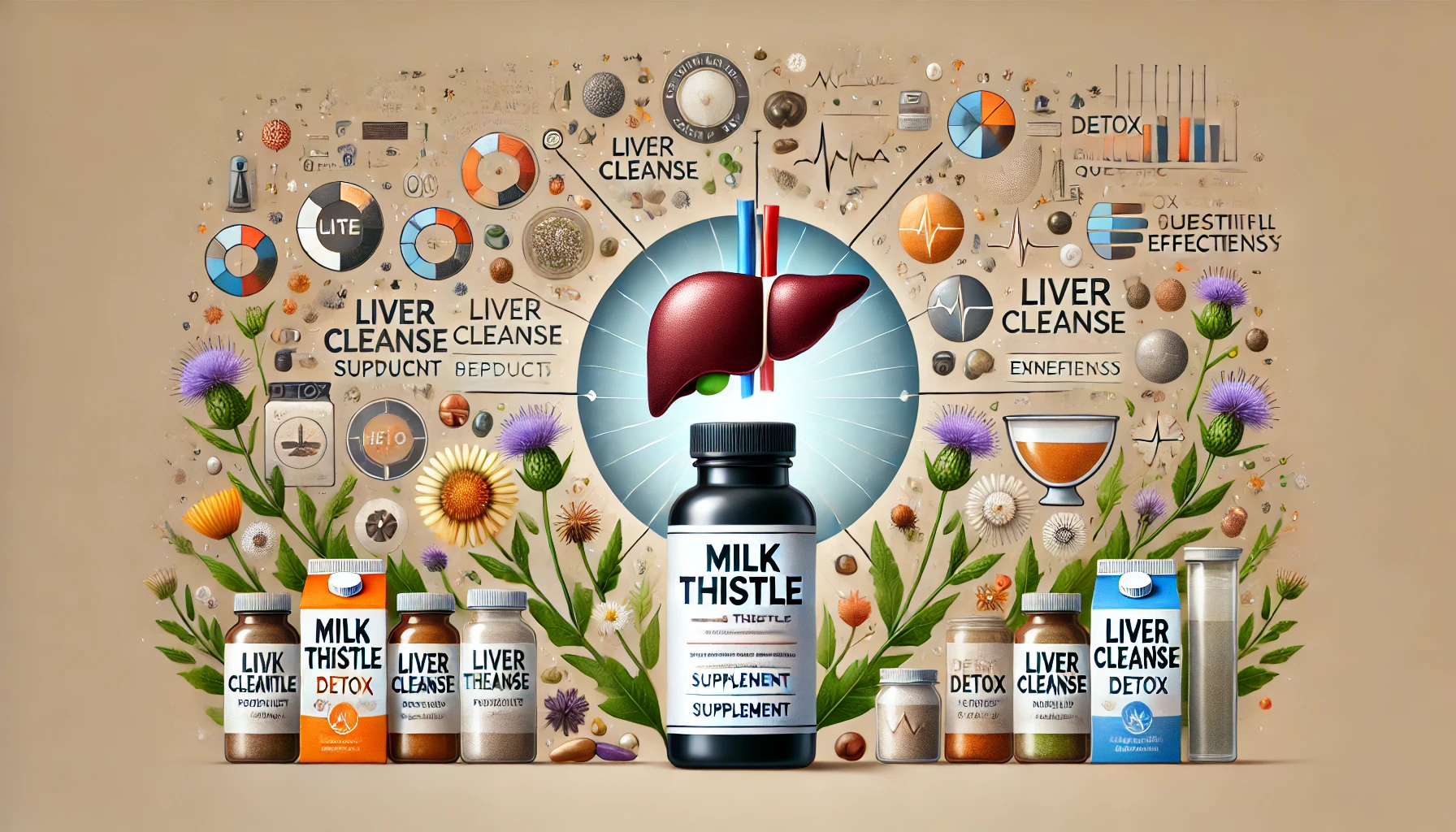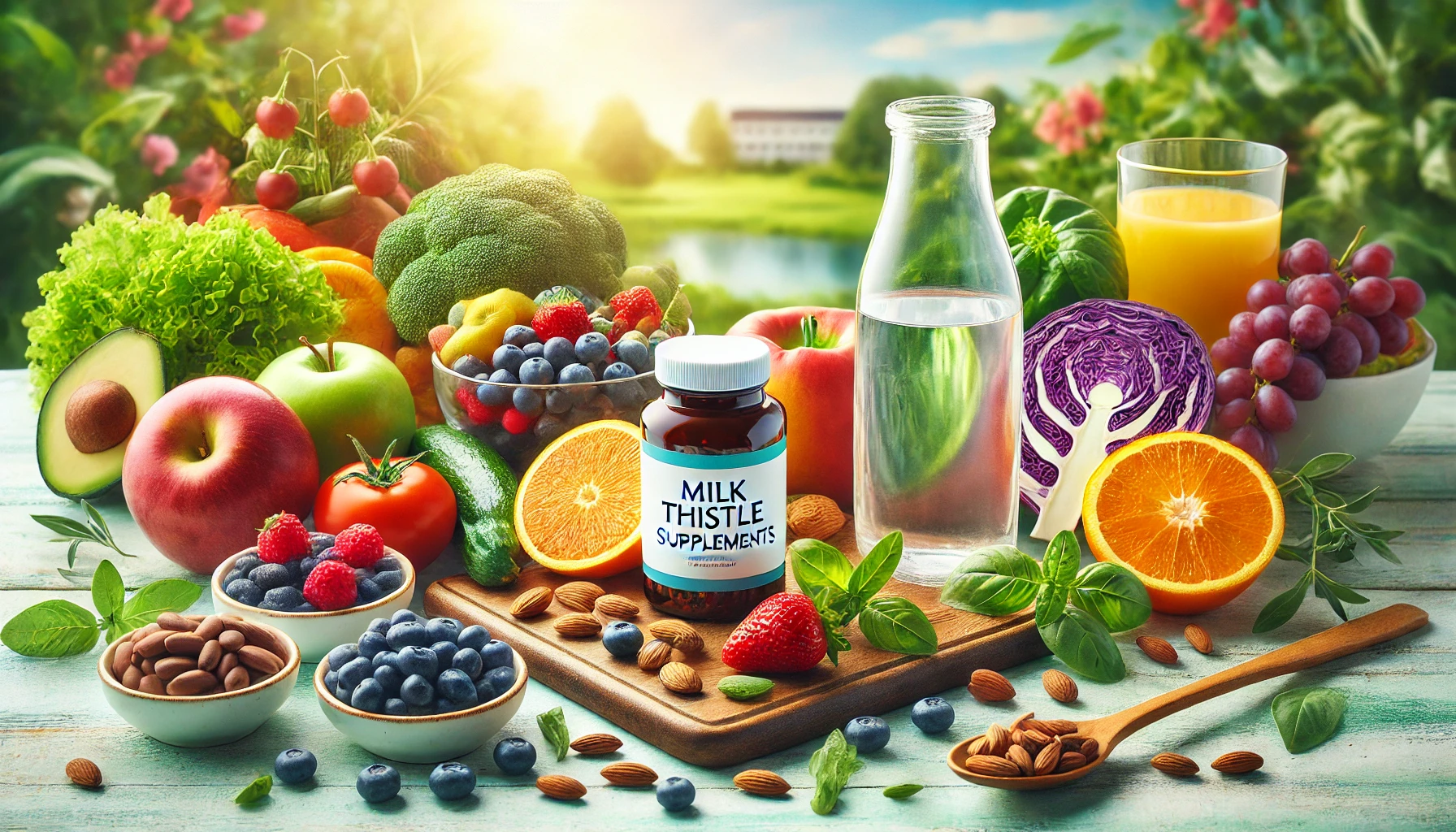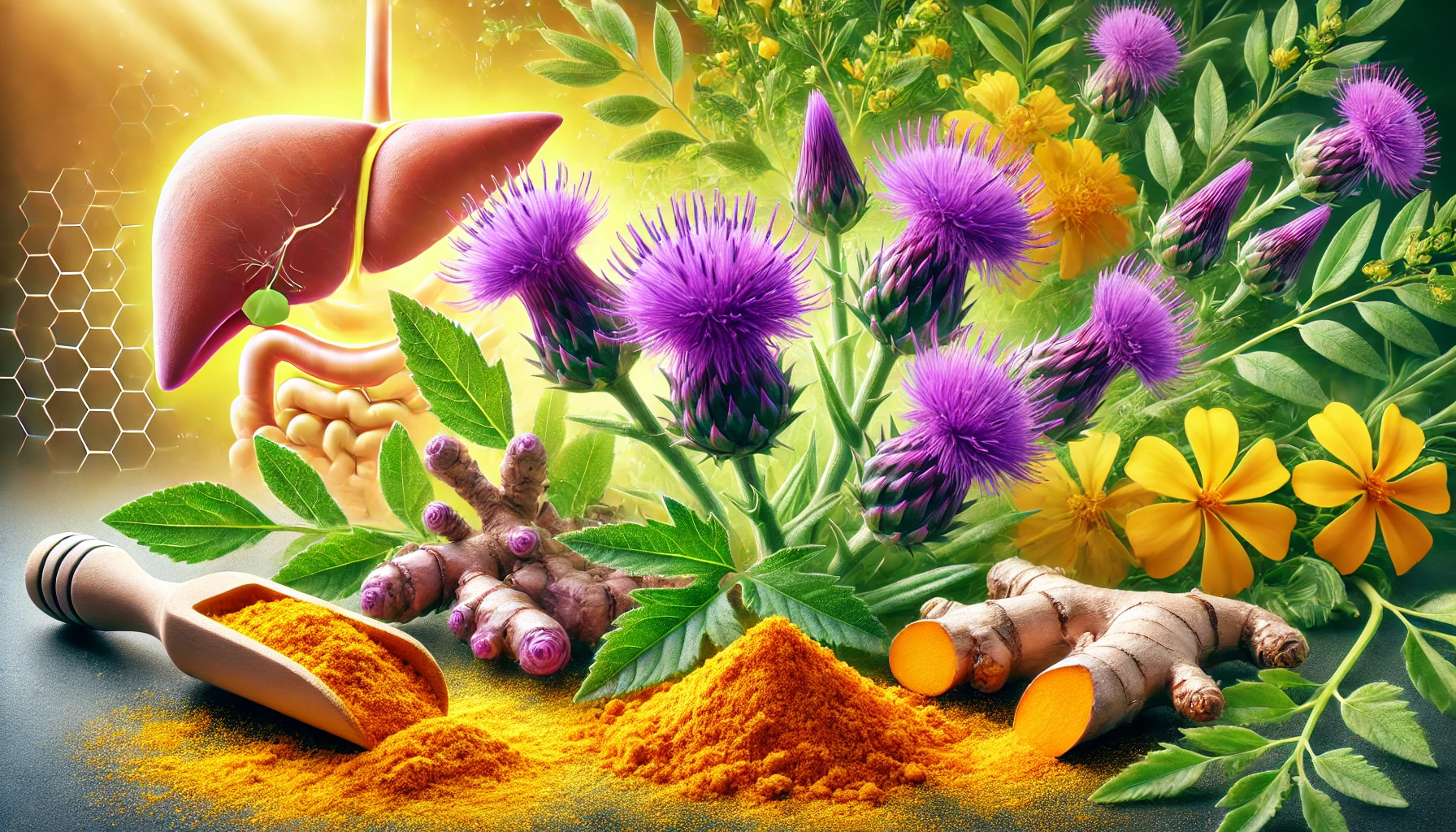Milk thistle, a flowering herb native to the Mediterranean, has been used for centuries as a natural remedy for a variety of ailments. Its primary active ingredient, silymarin, is a group of flavonoids that has garnered attention for its potential health benefits. With a history rooted in traditional medicine, milk thistle is now the subject of scientific research, and its potential therapeutic properties are being explored. This article delves into the science-based benefits of milk thistle, shedding light on how it might contribute to health and well-being.

1. Liver Health Support
One of the most well-known benefits of milk thistle is its ability to support liver health. The liver is a vital organ responsible for detoxifying the body, metabolizing drugs, and processing nutrients. Various studies have suggested that milk thistle can help protect the liver from damage caused by toxins, alcohol, and certain medications.
Silymarin, the active compound in milk thistle, is believed to have antioxidant properties that help reduce oxidative stress, a key factor in liver damage. Research has shown that silymarin can enhance liver function, potentially aiding in the recovery of liver cells damaged by alcohol abuse, hepatitis, or other liver-related conditions. In some cases, milk thistle has been used as a complementary treatment for liver diseases such as cirrhosis and non-alcoholic fatty liver disease (NAFLD). (1)
2. Antioxidant Properties
Antioxidants are substances that protect the body from damage caused by free radicals, unstable molecules that can harm cells and contribute to chronic diseases such as cancer, heart disease, and diabetes. Silymarin has been shown to exhibit strong antioxidant properties, making milk thistle a potential ally in the fight against oxidative stress.
The antioxidant effects of silymarin are believed to stem from its ability to scavenge free radicals and increase the levels of glutathione, a powerful antioxidant naturally produced by the liver. By enhancing the body’s antioxidant defenses, milk thistle may help reduce inflammation and protect cells from damage, contributing to overall health and well-being.
3. Anti-Inflammatory Effects
Chronic inflammation is a common underlying factor in many health conditions, including arthritis, cardiovascular disease, and certain types of cancer. Milk thistle has been shown to have anti-inflammatory effects, which may help alleviate symptoms associated with these conditions.
Research suggests that silymarin can inhibit the production of pro-inflammatory cytokines, molecules that play a key role in the body’s inflammatory response. By reducing inflammation, milk thistle may help prevent or manage chronic diseases that are driven by persistent inflammation.
4. Potential Cancer-Preventive Properties
Milk thistle has garnered interest for its potential role in cancer prevention and treatment. While more research is needed to fully understand its effects, some studies have shown promising results regarding its ability to inhibit the growth of cancer cells and enhance the effectiveness of certain cancer treatments.
Silymarin’s antioxidant and anti-inflammatory properties are believed to contribute to its potential cancer-preventive effects. Additionally, some research suggests that silymarin may help induce apoptosis (programmed cell death) in cancer cells, thereby preventing their proliferation. While these findings are promising, it’s important to note that milk thistle should not be considered a substitute for conventional cancer treatments but rather a potential complementary therapy.
5. Support for Skin Health
The skin is the body’s largest organ and is constantly exposed to environmental stressors such as UV radiation, pollution, and toxins. Milk thistle’s antioxidant and anti-inflammatory properties may help protect the skin from damage and promote overall skin health.
Some studies have suggested that silymarin can protect skin cells from UV-induced damage, potentially reducing the risk of skin cancer and premature aging. Additionally, milk thistle’s anti-inflammatory effects may help soothe skin conditions such as acne, eczema, and psoriasis. While more research is needed to fully understand its impact on skin health, milk thistle shows promise as a natural remedy for maintaining healthy skin.
6. Blood Sugar Regulation
Managing blood sugar levels is crucial for preventing and managing diabetes, a chronic condition that affects millions of people worldwide. Some research has indicated that milk thistle may help regulate blood sugar levels, making it a potential natural remedy for individuals with diabetes or those at risk of developing the condition.
Silymarin has been shown to improve insulin sensitivity and reduce blood sugar levels in some studies. Additionally, its antioxidant properties may help protect pancreatic cells from damage, further supporting healthy blood sugar regulation. While milk thistle should not replace conventional diabetes treatments, it may serve as a complementary therapy to help manage the condition.
7. Cholesterol Management
High cholesterol levels are a major risk factor for cardiovascular disease, the leading cause of death worldwide. Some studies suggest that milk thistle may help lower cholesterol levels, thereby reducing the risk of heart disease.
Silymarin has been shown to have lipid-lowering effects, potentially reducing levels of LDL (bad) cholesterol while increasing levels of HDL (good) cholesterol. By improving cholesterol levels, milk thistle may contribute to better heart health and reduce the risk of cardiovascular events such as heart attacks and strokes.
8. Kidney Health
The kidneys play a crucial role in filtering waste and excess fluids from the blood, maintaining a proper balance of electrolytes, and regulating blood pressure. Some research suggests that milk thistle may support kidney health by protecting against kidney damage and promoting proper kidney function.
Silymarin’s antioxidant and anti-inflammatory properties may help protect kidney cells from damage caused by toxins, oxidative stress, and inflammation. While more research is needed to fully understand its impact on kidney health, milk thistle shows potential as a natural remedy for supporting kidney function.
9. Brain Health
The brain is highly susceptible to oxidative stress and inflammation, which can contribute to neurodegenerative diseases such as Alzheimer’s and Parkinson’s. Some studies suggest that milk thistle may have neuroprotective effects, potentially supporting brain health and reducing the risk of cognitive decline.
Silymarin’s antioxidant properties may help protect brain cells from damage, while its anti-inflammatory effects may reduce neuroinflammation, a key factor in the development of neurodegenerative diseases. Additionally, some research suggests that milk thistle may improve cognitive function and memory, although more studies are needed to confirm these findings. (2)
Conclusion
Milk thistle is a powerful herb with a long history of use in traditional medicine, and modern research is beginning to uncover its potential health benefits. From supporting liver health and reducing inflammation to promoting skin health and regulating blood sugar levels, milk thistle shows promise as a natural remedy for a variety of conditions. However, it’s important to note that while the science behind milk thistle is promising, more research is needed to fully understand its effects and determine the optimal dosages for different conditions. As with any supplement, it’s important to consult with a healthcare provider before adding milk thistle to your regimen, especially if you have underlying health conditions or are taking medications.





